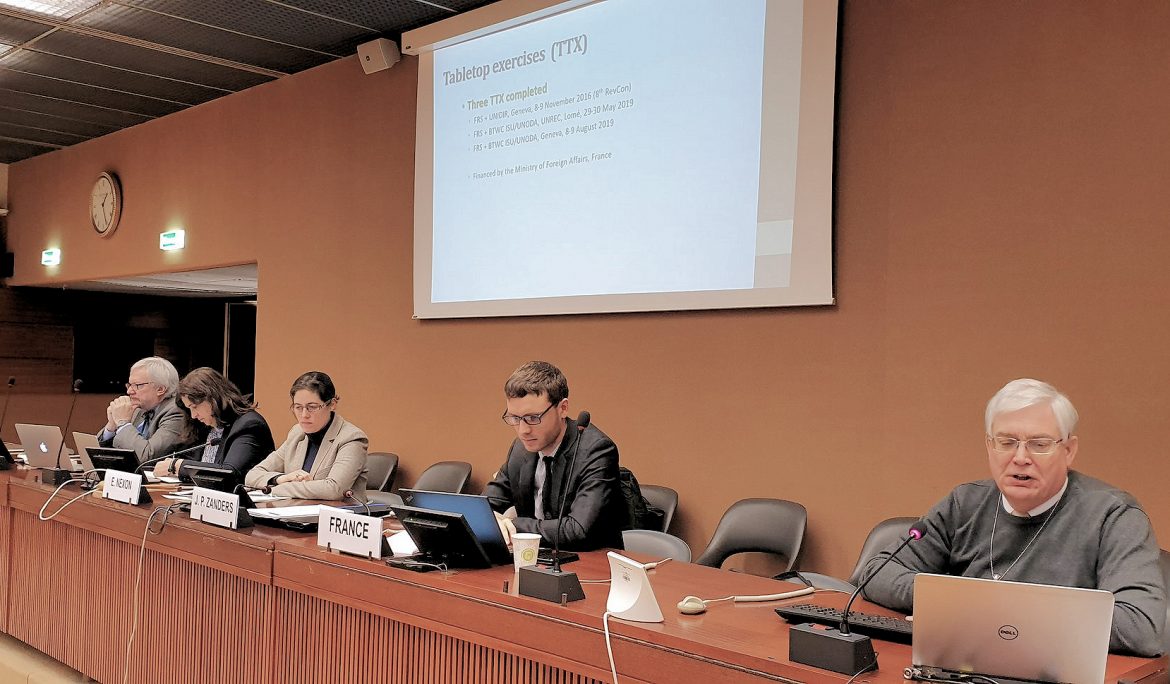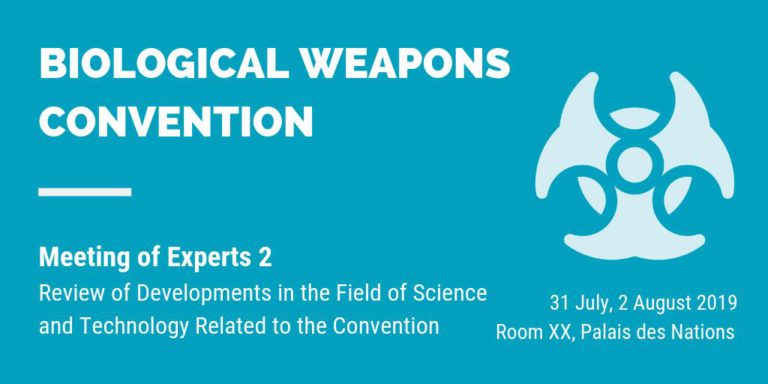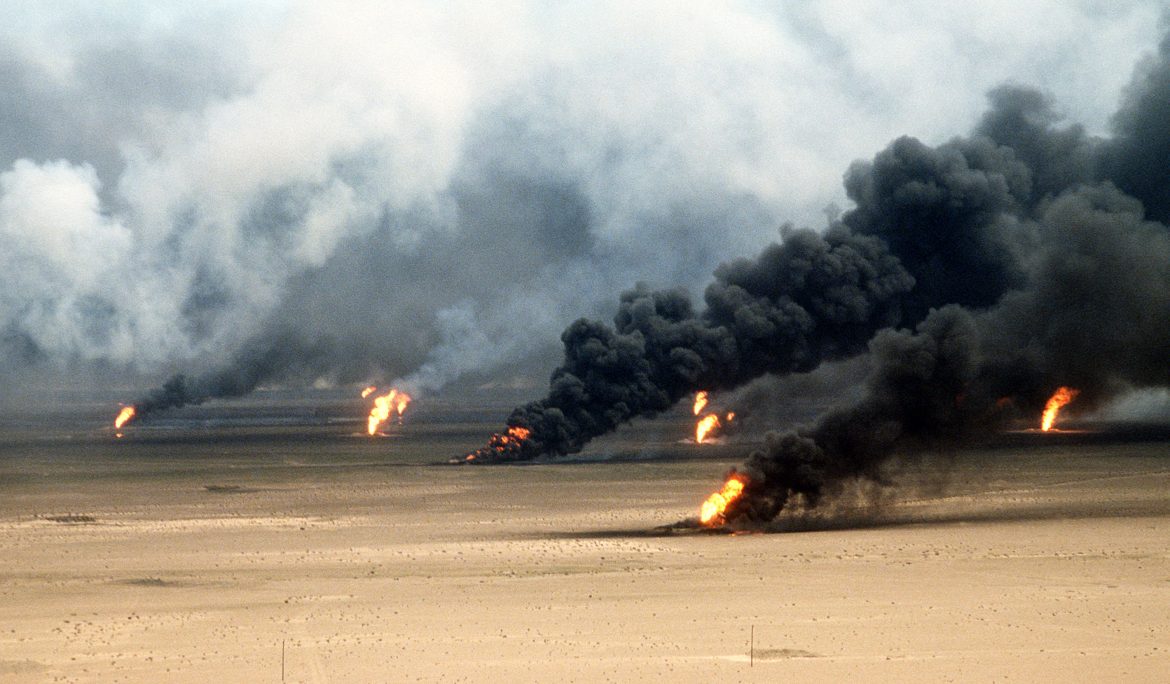Novichok and the Chemical Weapons Convention
Assassinations with nerve agents are rare. Very rare. The reason is simple: other means to eliminate a person are simpler and much more effective. The marginal benefit from using even some of the most toxic substances ever made by man is negligible. What is more, the attempt fails often, as Aum Shinrikyo experienced when trying to take out some of the cult’s enemies with VX before the 1995 sarin attack in the Tokyo underground. Last year’s murder of Kim Jong-nam, half-brother of North-Korean leader Kim Jong-un, also involved VX according to Malaysian authorities. However, the real perpetrator behind the two …
Palestine’s withdrawal of its instrument of accession to the CWC (Part 2)
In my blog posting of 16 January entitled ‘Palestine: From a “will-be” party to the CWC to a “would-have-been”?’, I described how Palestine submitted its instrument of accession to the Chemical Weapons Convention (CWC) with the UN Secretary-General on 29 December, only to withdraw it on 8 January. Since having achieved the status of ‘UN non-member observer state’ in 2012, Palestine has joined over 50 international agreements, including the Biological and Toxin Weapons Convention, to which it became formally a party on 16 January. The CWC is the only treaty on which it reversed its position. Retracting an instrument of …
Preparing the 4th CWC Review Conference: Education & Outreach
Role of education and outreach in the prevention of the re-emergence of chemical weapons For consideration by the Open-Ended Working Group preparing the Fourth Review Conference of the Chemical Weapons Convention at its ninth meeting Dr Jean Pascal Zanders Chairperson OPCW Advisory Board on Education and Outreach (ABEO) 30 May 2018 [PDF Version] The Advisory Board on Education and Outreach (ABEO) is a subsidiary organ of the Organisation for the Prohibition of Chemical Weapons (OPCW). Its members, together and individually, represent a wide range of education and outreach (E&O) expertise and experience. Besides strategic and practical advice to the OPCW …
Preparing the 4th CWC Review Conference: Civil Society – 1
Possible Priorities for the Fourth CWC Review Conference and for the OPCW in the Next Five Years Statement by Dr John Hart (Stockholm International Peace Research Institute – SIPRI)* Presented at: Open-Ended Working Group for the Preparation of the Fourth Review Conference (OEWG-RC), Organisation for the Prohibition of Chemical Weapons (OPCW), The Hague, Netherlands, 16 April 2018 I would like to thank the OPCW and the Open-Ended Working Group for the Preparation of the Fourth Review Conference (OEWG-RC) for the opportunity to participate in today’s meeting. I would also like to thank all others who have been involved in …
The Meaning of ‘Emergency Assistance’
Origins and negotiation of Article VII of the Biological and Toxin Weapons Convention – A new research report Article VII of the Biological and Toxin Weapons Convention (BTWC) belongs to the more obscure provisions. It reads as follows: Each State Party to this Convention undertakes to provide or support assistance, in accordance with the United Nations Charter, to any Party to the Convention which so requests, if the Security Council decides that such Party has been exposed to danger as a result of violation of the Convention. Since the treaty’s entry into force in 1975, states parties hardly looked at the …
Impunity through knowledge management: The legacy of South Africa’s CBW programme
Book review: Brian Rappert and Chandré Gould, The Dis-Eases of Secrecy: Tracing History, Memory & Justice (Jacana Media: Johannesburg, 2017), 261p. It took me almost a year to write this book review. There are reasons why. First, the book is not that easy to read. While one can read it linearly (that is one page after another, as one would normally do), it instead invites readers to follow the logic of the argument, which entails dashing back and forwards from one part in the book to another. Second, the insights are profound, and the reader needs to let them sink …
An anthrax attack against cattle: Would international emergency assistance be forthcoming?
Last Friday the Fondation pour la recherche stratégique (Paris) presented its new report on Article VII of the Biological and Toxin Weapons Convention (BTWC) during a side event of the Meeting of States Parties (3–6 December). The publication summarises the third tabletop exercise (TTX) to better understand how a party may request international assistance under Article VII if it has been exposed to a danger resulting from a treaty violation. Such a danger may include the use or threat of use of biological weapons (BW) by another state party. The first (Geneva, November 2016) and second (Lomé, May 2019) TTXs achieved better understanding of …
Blog 2 – Experiences of a student at the Meetings of Experts of the Biological and Toxin Weapons Convention
This second blog post covers both the second and third Meetings of Experts (MXs) of the Biological and Toxin Weapons Convention (BTWC). MX2 on science and technology took place on 31 July and 2 August (the day in between being the Swiss national day); MX3 on strengthening national implementation of the BTWC was a one-day event on 5 August. MX2 impressions Like at the start of the week I was still sitting behind The Trench nameplate, which was formally represented for the first time in these five MXs of 2019. MX2 was chaired by Mr Yury Nikolaichik of Belarus who decided to …
Allegations of Iranian Use of Chemical Weapons in the 1980–88 Gulf War – Introduction
Allegations that Iran is a chemical weapon (CW) proliferator originated in part with claims that it had used CW during the 1980–88 Iran–Iraq war. Iraq was the principal user of CW during the war. According to Iranian accounts, the first chemical attacks began in January 1981, but independent reports were not published until one and a half years later. Iraqi chemical attacks definitely escalated during the second half of 1983, which eventually led to the first of several investigatory missions organised by UN Secretary-General Javier Pérez de Cuellar in March 1984. Despite the overwhelming evidence of chemical warfare, confirmed by …
Allegations of Iranian Use of Chemical Weapons in the 1980–88 Gulf War – Iran’s offensive preparations
Two factors definitely contributed to the change in Iran’s views on chemical warfare: the systematic Iraqi attacks with CW from 1983 onwards and the lack of response from the international community for the Iraqi violations of international law. Iran’s chemical weapons (CW) armament programme started late into the war. Such a programme is complex and involves many phases, including research and development, setting up a production base, weaponisation, offensive and defensive doctrine development, establishment of logistics and operational support, training, and protection and defence. Consequently, Iran cannot be expected to have developed an advanced chemical warfare capability before the cease-fire …



